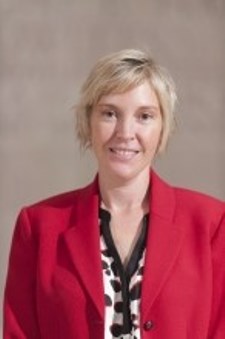
Winter 2017
Navigating a Career in Spirituality and Health Research: An Interview with Cheryl Holt
Kathleen Isaac, MPhil, Spirituality and Health SIG

Cheryl Holt, PhD, FAAHB
Dr. Cheryl L. Holt, PhD, FAAHB is a professor in the department of Behavioral and Community Health at the University Of Maryland School Of Public Health. For over 15 years, Dr. Holt has worked on a number of projects focused on community-based health communication studies and the role of religion and spirituality in health cognitions and behaviors. Her most recent project involves testing efforts to integrate sustainable health education in African American churches. The Spirituality and Health SIG interviewed Dr. Holt, as a leader in the field, to get her perspective on establishing her career.
Spirituality and Health SIG: You have conducted a considerable amount of research on spirituality in the African American Community. What sparked that interest and what was your path to your current position?
Holt: I obtained my doctoral degree in social psychology and for me, it was a natural progression to public health. During my training, I got a research assistant position in public health and this was a formative experience for me. Studying persuasive communication applied seamlessly to health communication research. Early on in graduate school, I was exposed to the importance of faith and spirituality in the way community members talked about health, and noticed how issues of faith and religion were deeply rooted in narratives about breast cancer. My first faculty position at the University of Birmingham Alabama provided a dynamic research environment where I took on grant writing and supportive research. I then went on to the University of Maryland, where I was invited to become involved in National Cancer Institute (NCI)- funded research. I co-led the team that applied for and obtained NCI-designated comprehensive status.
Spirituality and Health SIG: What challenges have you faced along the way and how have you overcome them?
Holt: We don’t always have specific expertise to write competitive grants, and have to go outside of the institution. Networking is not naturally easy for me, but in recent years I have made more of an effort to make connections and talk about the progress of my lab. This might be because I’m a first generation college student.
Spirituality and Health SIG: I can imagine that being a first generation college student is a unique experience that not many in doctoral programs can relate to. What impact did that have on your training experience?
Holt: As a first generation college student, you don’t know what to do because you have no frame of reference and at times you can feel like an outsider. It’s subtle how it manifests itself.
Spirituality and Health SIG: What challenges have you encountered in terms of studying spirituality?
Holt: I learned from scratch because I wasn’t raised in a strong faith tradition. I learned that my assumptions were not true. There was also mistrust from community members. I learned to go in with an open mind and listen. My advice for engaging with community members is to listen, and be respectful. Be authentic and follow through with promises. It is not difficult to establish and maintain trust if you do those things.
Spirituality and Health SIG: In your view, why is it important to study Spirituality and Health?
Holt: It’s an important cultural factor that is related to health cognitions and behaviors, if you are working with a population that embraces faith. We don’t have to hold the same beliefs, but we should recognize how cultural factors influence how people take care of and help themselves.
Spirituality and Health SIG: What advice would you give to students/early career professionals who are interested in a focus on spirituality and health in their training/career?
Holt: My general advice is persistence. Often people give up when a project doesn’t get funded or a paper gets rejected. You have to develop thick skin and know it’s not easy: you’ll learn a great deal and be stronger. I’ve seen people get discouraged and it takes building resilience to continue with the path that you are on. Also, search out great people and get a cadre of strong mentors. One person isn’t able to do everything in a mentorship role.